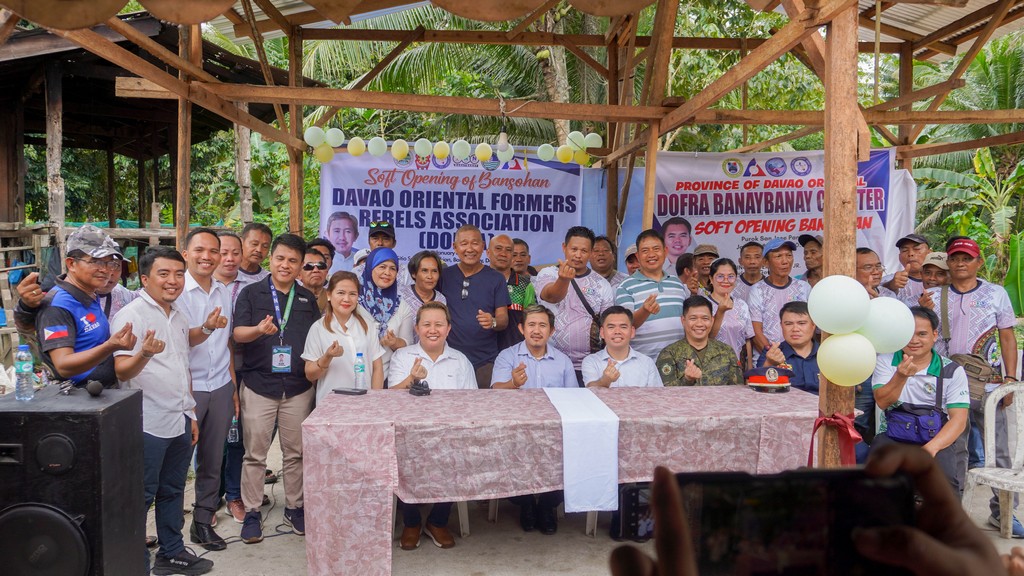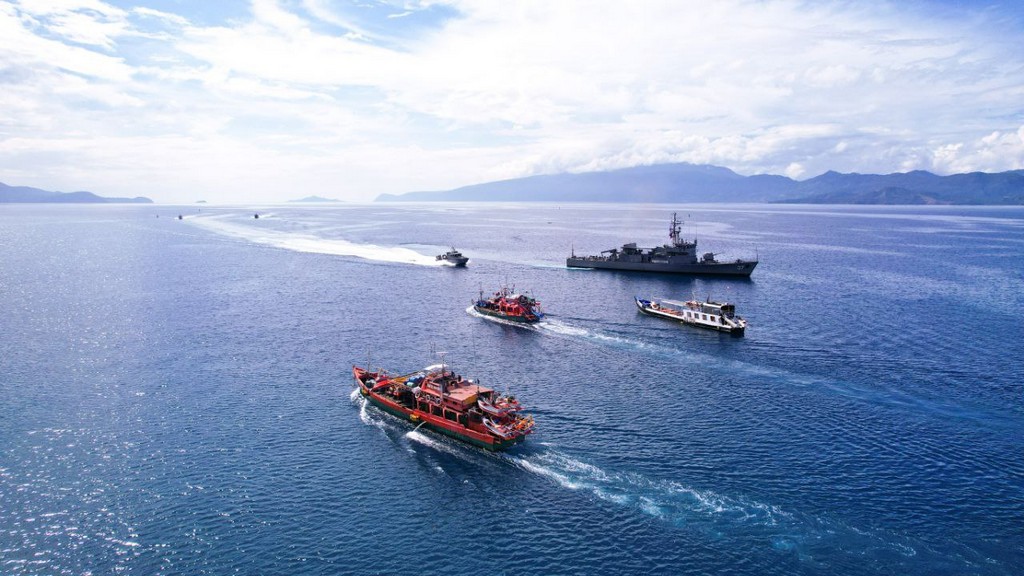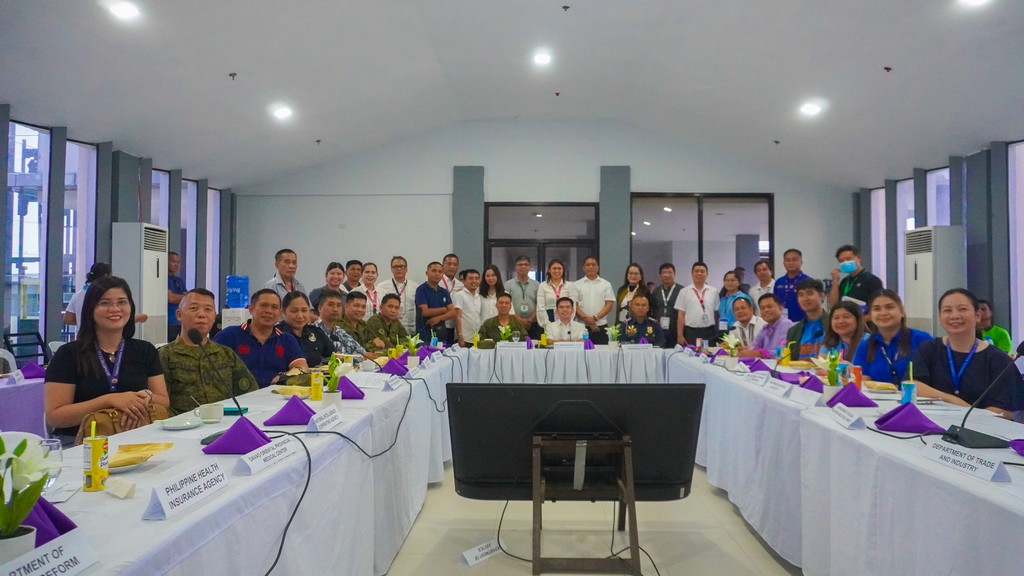City of Mati, Davao Oriental –– A few days before retirement from military service, General Rey Leonardo Guerrero, the chief of staff of the Armed Forces of the Philippines, visited the province of Davao Oriental on Wednesday where his colorful military career started.
The province of Davao Oriental is home to the Philippine Army’s 701st Brigade that Gen. Guerrero described as the “factory of generals.”

“Alam n’yo, dito sa 701st Brigade nagsimula ang lahat. From Task Force Davao commander, dito ko rin nakuha ang aking unang estrella. Itong brigade na ito ang factory ng mga generals. Wala pang dumaan sa brigade na ito na hindi naging general. Lahat ng dumaan sa brigade na ito naging general, at lahat ng dumaan sa brigade na ito ay naging kilala dahil sa kanilang pag ganap ng tungkulin. (You know, it is right here in the 701st Brigade where my military career have started. From Task Force Davao where I served as commander, this is where I received my first star as a general. This brigade is a factory of generals. Those who went through this brigade became generals and they became famous too for their exemplary performance),” says General Guerrero who arrived early in the morning on Tuesday at the sprawling military camp of the 701st Brigade in the City of Mati.
Speaking before a crowd of regular members of the military and former members of the Communist New People’s Army who surrendered to the government, the general recalled his colourful stint in Davao Oriental. He said that under his watch, Davao Oriental was “close to being declared as insurgency-free province in Mindanao.”
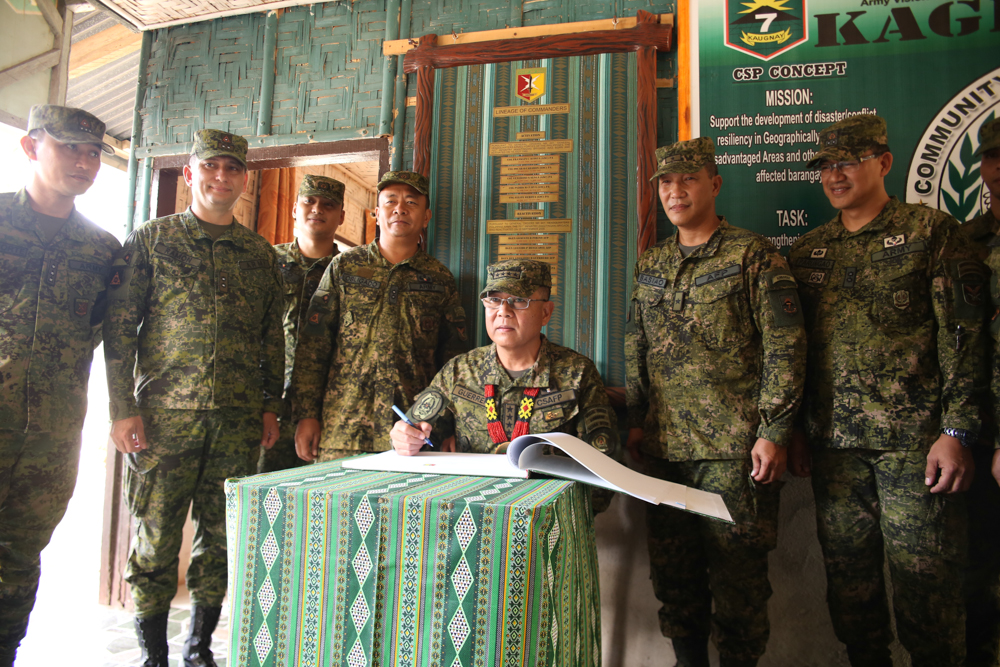
The Internal Peace and Security Plan or Bayanihan program of the Armed Forces of the Philippines was piloted in Davao Oriental to great success, with government and the military cooperating in bringing development projects to far-flung areas especially those called GIDAs or Geographically Isolated and Disadvantaged Areas which are far from vital government and private resources. The government has defined GIDAs as communities with a marginalized population and physically and socio-economically separated from the mainstream society. They are physically isolated due to distance, adverse weather conditions, lack of transportation (island, upland, lowland, landlocked, hard to reach and unserved or underserved communities), with high poverty incidence, presence of vulnerable sectors, and a community in or recovering from situations of crisis or armed conflict. These inaccessible areas became perfect refuge for rebel groups operating in the province as they felt safe in these areas that eventually became their nerve centers from which all revolutionary movements in the region are directed.
The general has highlighted the strong cooperation between the provincial government and the military in providing basic services to conflict areas in the province to address the decades-old problem of insurgency. Through the Nagkakaisang Lingkod Bayan ng Davao Oriental, the provincial government and the military have come up with a more comprehensive program for pursuing peace. It is being done by fostering community dialogues, introducing community-owned projects, and creating communities of peace. They pursued principled partnerships with people’s organizations, non-government organizations, churches from different religions, tribal leaders, local government units, government agencies and many other sectors who know how to reach out to the constituents and win their cooperation and trust. The program aims to promote and preserve a peaceful and livable Davao Oriental where people enjoy basic services and are actively involved in planning development and exercising governance. It initiates responsive interventions to address the lingering problem of insurgency and even the people’s feeling of apathy towards government capacity to provide safety and security to its constituents.
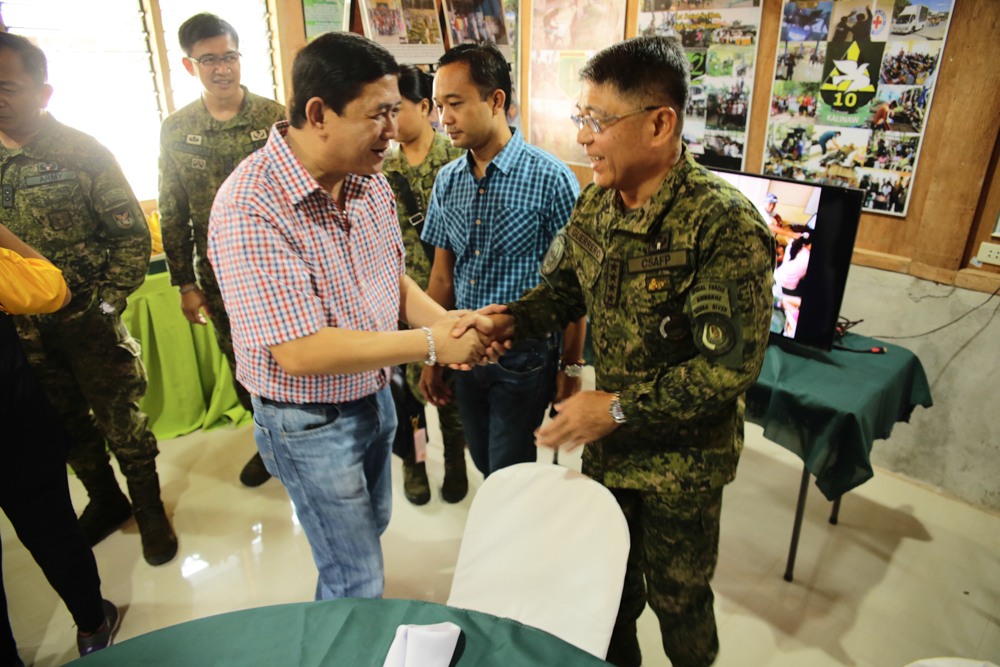
“Come closer to me. Free formation kayo, lapit kayo. I want you to be as comfortable as possible. This is my final visit to the units that I have been assigned to. I am visiting these units not only as part of tradition but also on my personal capacity to personally say my thanks to the officers and personnel that have been part of my military service, most especially the units that I have commanded. Several days from now, I will be bowing out from the military service,” General Guerrero told the soldiers and the former Communist rebels.
“Marami na ang dumaan dito sa Davao Oriental, marami na ang nag buwis ng buhay nila, maraming pawis at dugo ang tumulo para lang makamit ang kapayapaan dito sa Davao Oriental. Kaya nararapat lang na ipagpatuloy natin ito hindi lang para maging maunlad ang probinsyang ito, para makatulong na rin tayo sa kabuhayan at kaayusan ng ating buong sambayanang Pilipinas. Gagawa nyong ipalawak pa at mailaganap ang kaalaman na ito nang sa ganoon ang ating mga iba pang mga kapatid na nasa bundok makombensi na rin na bumaba at tumulong sa ating pamahalaaan, nang sa ganoon, sa pagtutulungan natin, maipatupad natin ang talagang katahimikan at kaayusan para dito sa ating bansa. (There are so many who have sacrificed their lives, shedding sweat and blood, just so we can achieve a meaningful peace in the province of Davao Oriental. We must continue with this endeavour so we would be able to achieve economic progress and so we can help build a progressive and peaceful country. May you help spread this good development so we would be able to convince the rebels in the mountains to surrender and go back to the folds of law to help us in the peace-building efforts in the country),” says General Guerrero.


